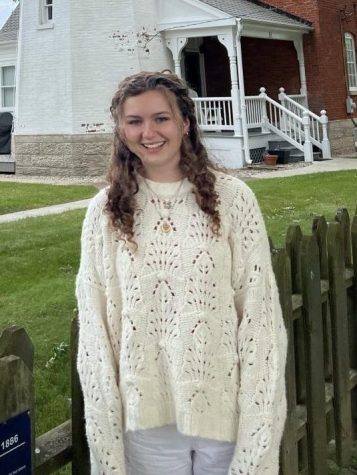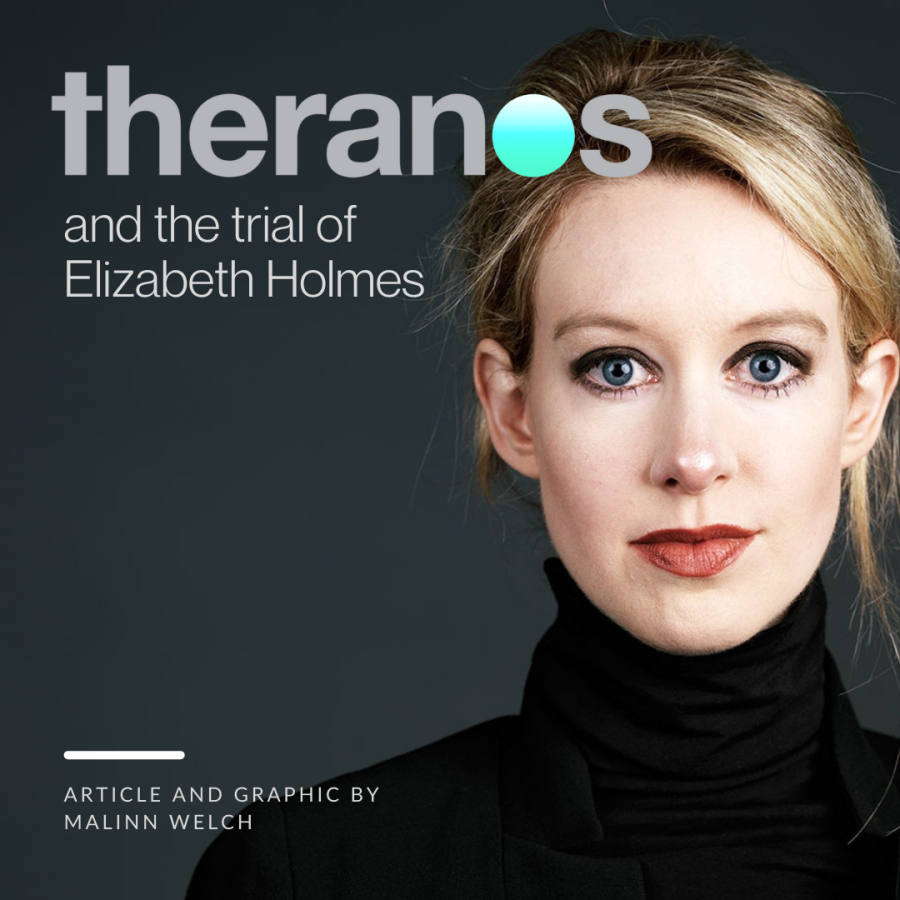Theranos and the Trial of Elizabeth Holmes
Elizabeth Holmes was named by Forbes one of the youngest self-made billionaires, nominated to the board at Harvard Medical School, listed in Time Magazine’s “100 most influential people”, became a medical tech revolutionary, and now convicted on 4 counts of fraud. On January 3, Holmes, founder of the medical company Theranos, was found guilty on 4 of 11 proposed charges. After a multi-year trial, Holmes faces a maximum of 20 years in federal prison for acts committed by Theranos, which had the goal of revolutionizing medical blood testing.
Who is Elizabeth Holmes?
Stanford drop-out and former billionaire, Holmes is currently destitute in comparison to her former life. Holmes was born into a middle-class family in Washington D.C with scientific aspirations for her future. As a young child, Holmes wrote her father a letter explaining that she “really want[ed] … to discover something new, something that mankind didn’t know was possible to do.” Holmes’ dream of profoundness came closer to grasp upon her acceptance into the Stanford University chemical engineering program. While at Stanford, she designed an antibiotic infusion patch, an idea innovative to the medical field; however, the patch did not function. Upon presenting this idea to Phyllis Garner, an advisor, Garner explained that Holmes “just stared through me. And she just seemed absolutely confident of her own brilliance. She wasn’t interested in my expertise.” Garner details an initial moment where Holmes’ dream of profoundness transcended the bounds of truth.
What is Theranos?
Theranos, founded in 2003, capitalized on the idea of streamlining the blood testing industry to a single finger prick for countless blood tests. Currently, blood testing requires a preliminary visit to a doctor’s o�ce, possible travel to an o�-site testing facility, and the patient giving at least one vial of blood. Theranos promised to change all of that. Using the proposed Edison Machine, a patient would merely give a few drops of blood; the volume was often unknown as it varied from patent to patent. This test could be conducted at a convenient local pharmacy — Theranos even secured a partnership with Walgreens. This partnership, along with all of the ethos surrounding the company tumbled to the ground after it was revealed that the technology produced inaccurate results. The nanotechnology machines known as the Edison, Nanotainer, and MiniLab were developed by Holmes and partner Ramesh “Sunny” Balwani along with the funds of venture capitalists. The fraudulent technology provided hundreds of people with false diagnoses of HIV, diabetes, and cancer. The bottom line is that the technology Theranos was peddling did not exist.
The Trial of Elizabeth Holmes
After years of skepticism from both the scientific and business communities, it was concluded and exposed publicly, that Theranos technology produced inaccurate patient results. Holmes was indicted on charges of fraud in June 2018. The trial began on September 8, 2018, and has endured numerous delays since the opening statements. The case of the prosecutors came from Holmes’s deception about the technology’s abilities. The prosecution called upon a multitude of witnesses, testifying to personal misdiagnosis, fraudulent business practices, and a falsified partnership with the U.S. military. Former employees of the company testified that machines regularly failed inspections; however, they were continually promoted to the customer as functioning. In November 2021, Holmes took the stand herself, described by �e New York Times as “paint[ing] herself as a well-meaning entrepreneur who was naïve and relied too much on those around her. She said she had been emotionally and physically abused by Ramesh Balwani.” Balwani, the former Chief Operating O�cer of Theranos as well as Holmes’ former boyfriend, was also indicted for fraud and will go on trial later this year. On the stand Holmes matter-a-factly relayed the timeline of Theranos, speaking about conversations with investors and employees, citing “I don’t know” as a more than recurrent answer. Kevin Dowey, Holmes’ lawyer, explained his defense with, “If someone is acting in good faith, you have no reason to find them guilty.”
The trial of Elizabeth Holmes has illuminated years of lies. Lies to patients seeking accurate blood tests, lies to investors placing their money in a near Fortune 500 company, and lies to those at the Theranos company, possibly including Holmes herself.
Your donation will support the student journalists of Enloe Magnet High School, allowing us to cover our annual website costs. We are extremely grateful for any contribution, big or small!

(She/her)
Malinn is a senior and excited to return to the Eagle’s Eye as an A&E editor! She is passionate about fashion, sewing, and clothes in...







